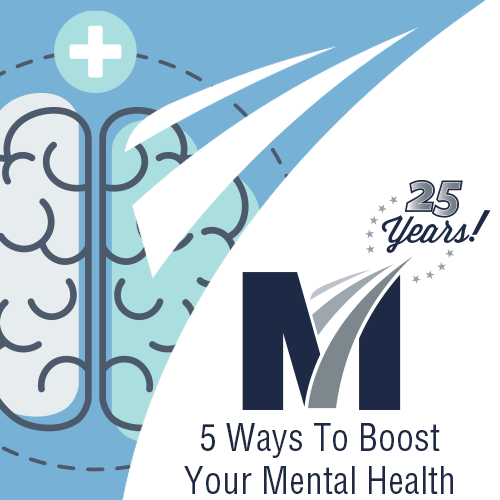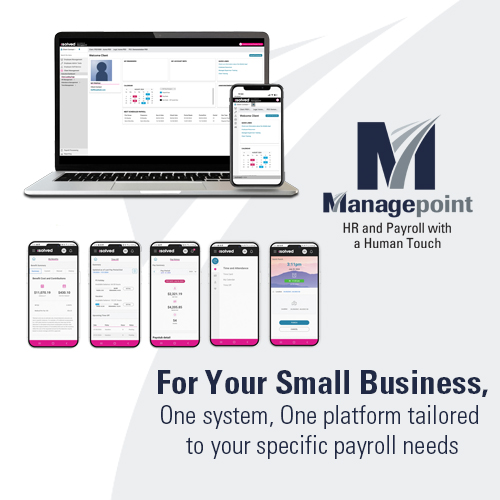5 Ways to Boost Mental Health

Mental health has (rightfully) taken center stage in the workplace. Poor mental health can affect job performance, productivity, communication with coworkers, and even physical capabilities/daily function.
Employers started to listen to their employees’ wants to discuss mental health in 2019 but that was before a global pandemic, inflation, political unrest, and the myriad of other issues that have cropped up since.
Now, employees are starting to make mental health more of a priority, during and outside of the work day. Here are some simple ways to help give your brain and mood a boost.
1.) Move the Body, Help the Brain
Though hitting the gym or getting your body moving is the last thing you may want to do if you’re not feeling yourself, exercise may actually be the best for you.
Not only does exercise take your mind off of your worries by giving you something else to concentrate on, but it also releases feel-good hormones like endorphins and can even “be the single best thing one can do to slow the cognitive decline that accompanies normal aging”, says David Linden, Ph.D.
Beyond the biological, exercising can also help you gain confidence and increase social interaction (see reason 4 to see why that matters). Whether it’s a workout after work or merely a 10 minute walking-break from your desk, get moving and feel the results.
2.) Sleep, Snooze, & Slumber
We can all be a bit grouchy after a rough night’s sleep but studies have shown that a real lack of sleep can contribute to concentration problems, memory loss, and even more serious mental health issues like depression, bipolar disorder, and anxiety.
The CDC recommends getting at least 7 hours of sleep a night and although it’s harder than ever to unwind before bed, setting a regular routine, avoiding screens, and creating a positive sleep environment can go a long way.
3.) Mood Food & Hydration
Though “comfort foods” (hamburgers, macaroni and cheese, etc) have often been thought of as mood-boosters, more healthy and nutrient-dense foods actually contribute to less depression and greater levels of overall happiness.
In addition to food, staying hydrated and drinking water also directly contributes to boosting energy and reducing stress. Remember, good goes in, good comes out.
4.) Connect By Disconnecting
After the pandemic made screen to screen communication the norm, daily face to face interactions became more and more rare. Even as employees are starting to return to the office, many continue to use a hybrid style of working.
With a reliance on online communication, it has become paramount to make connections (whether within the workplace or outside of it) via some old-fashioned social interaction. So disconnect from your computer and reconnect with someone in-person.
5.) Get Help (If You Need It)
If at the end of the day, you feel as though you still need assistance, it’s always okay to reach out for help. You can find a list of NAMI resources here.
Managepoint understands what a business needs when it comes to providing human capital solutions. From 10 to 300 employees–for benefits, payroll, professional recruitment support, training and much more, our clients rely on us to provide the knowledge, support and technology necessary.



